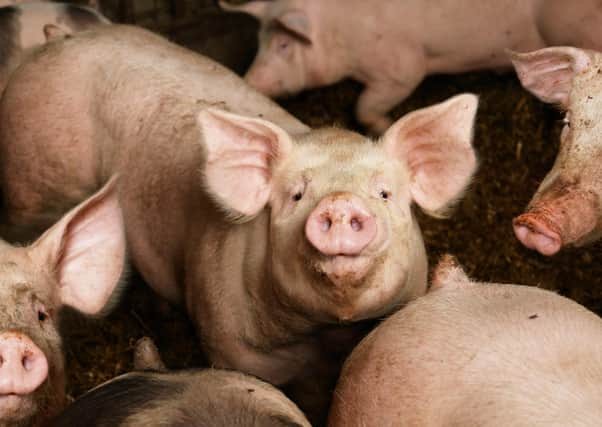UFU and DAERA discuss pig sector


This is due to the reduced ability to slaughter at local plants caused by labour shortages.
UFU deputy president William Irvine said: “The UFU presidential team, committee reps and chief executive, had a constructive meeting with the Agriculture Minister about the ongoing staff shortage that processing plants have been experiencing for a number of weeks now. The labour availability issue is severely impacting the agri-food industry and in particular, the pig sector. A back log of pigs is occurring on farms across NI because processors do not have the workforce required to maintain the essential level of slaughter.
Advertisement
Advertisement
“We also raised this labour availability issue last week at Back British Farming Day with the Home Secretary in Westminster and stressed how critical it is that businesses can access the workforce they require. At the present time our members are doing all they can to utilise sheds for cattle and sheep as processing factories try to work through the backlog, but winter is fast approaching, and these sheds will be needed for other livestock. If things are not resolved quickly, it will cause chaos for our farmers putting more pressure on an already pressurised situation.
“The demand for locally produced products such as pork and bacon remains strong, and despite talks about possible food shortages, the ironic thing is, there is plenty of livestock ready and waiting to be processed. However, if the immigration policy is not changed, this could well be the case for certain products.
“At Christmas there is usually a spike in the market but this year consumers could be facing empty shelves in pork aisles whilst farmers struggle to manage the oversupply on their farms because of labour issues.”